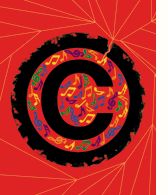 |
 |
||||||
|
|
|
|
|
The Recording Industry Association of America is suing the creators of Napster — a music sharing service that allows users to obtain electronic music files called MP3s without paying for them. Some musicians and music companies believe the site cuts into their profits and will eliminate the need for their CDs and tapes. For web users, this lawsuit will be the first of many to create boundaries for the Internet where copyright law is constantly ignored, according to Carol Simpson, UNT assistant professor of library and information sciences. Like Napster, the Internet is an open frontier where people can freely download everything from CDs to books as long as someone is willing to upload them. The problem is that while copyright laws are as old as this country and addressed in the U.S. Constitution, the Internet is a modern-day Wild West. And the law doesn’t quite know what to do yet, Simpson says. “We’ve all downloaded everything from Dilbert cartoons to movie clips from the web, and all of it’s illegal without the appropriate consent,” says Simpson, a nationally recognized copyright expert. “The law just hasn’t caught up with technology — we’ve still got Supreme Court justices who use typewriters instead of computers.”
Precedents and possibilities Although Napster is new, the concerns that it causes are not. Just as music executives have filed suit against Napster’s 19-year-old creator, Shawn Fanning, movie and TV executives sued Sony for creating the VCR. “And in its wisdom, the Supreme Court said technology can’t be illegal just because it can be used to violate copyright law — the same could apply now,” Simpson says. In September, Napster competitor MP3.com lost a lawsuit to a music company for illegally uploading CDs to the Internet, directly violating copyright law. Napster, like the VCR, simply provides a means by providing the software that could be used to violate the law. The site’s users are the ones who cross the same line that MP3 did, Simpson explains. It’s very likely that Napster software will join the ranks of VCRs, tape recorders and copiers, causing great change by forcing an industry to adapt to new technology, says Dee Knight, a lecturer in merchandising and hospitality management who studies small businesses. “Napster is only part of the problem for small business,” she says. “Entrepreneurs and small business owners are already competing with the Internet and the world. “Everyone must learn to use Napster technology to their advantage and provide a service. That’s what small music shops are discovering now and what big industry must learn.” In October, a major player in the music industry took its first steps toward learning this lesson. Bertelsmann AG, which owns BMG Entertainment, broke from the groups suing Napster to form a partnership with it. Bertelsmann is working to use the Napster technology to its own benefit.
Napster babies No matter what, the technology is going to continue to develop and advance, says Stephen Tate, associate professor of computer sciences. Even if naysayers eliminate Napster, there are more than 50 Napster clones as well as several Napster descendants that are nearly impossible to track. Gnutella, one of these offspring, lets a user’s computer talk to others linked to the Internet and download music, images and even movie files directly. Unlike Napster, there’s no central web site or company to sue. “With Gnutella you can still tell who is logged on and what they are downloading,” Tate says. “But things are changing so quickly that even that problem has been eliminated through Freenet.” Freenet also directly networks computers without a central site, but the user information and the exchanged files are encrypted. “So there’s no way to tell who is sharing what,” Tate says. “And users are adapting so quickly because individuals or small groups can make important advances in this technology, while the big companies are in a rush to catch up.”
Whose files are they, anyway? With technology advancing so quickly, knowing what you can legally obtain from the Internet is incredibly confusing. Simpson offers the following tips to avoid copyright infringement. “Remember that almost everything on the Internet is copyright-protected even if it doesn’t have a notice of some type,” she explains. Exceptions, she says, include documents produced by the federal government and works that fall in the public domain (typically those created before 1923). Finally,
Simpson says, “The current issues are like speeding through Denton
along I-35 when there are no police to stop you; does being able
to get away with it make it right?”
|
||||||||

 FOR BOTH THE COMPUTER SAVVY AND THE TECHNOLOGICALLY CHALLENGED,
two words will become central to future Internet adventures: Napster
and copyright.
FOR BOTH THE COMPUTER SAVVY AND THE TECHNOLOGICALLY CHALLENGED,
two words will become central to future Internet adventures: Napster
and copyright.